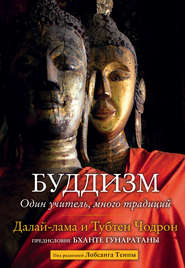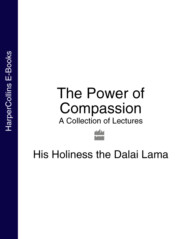По всем вопросам обращайтесь на: info@litportal.ru
(©) 2003-2024.
✖
The Dalai Lama’s Little Book of Wisdom
Автор
Год написания книги
2018
Настройки чтения
Размер шрифта
Высота строк
Поля
There is another type of practice of tolerance which involves consciously taking on the sufferings of others. I am thinking of situations in which, by engaging in certain activities, we are aware of the hardships, difficulties and problems that are involved in the short term, but are convinced that such actions will have a very beneficial long-term effect. Because of our attitude and our commitment and wish to bring about that long-term benefit, we sometimes consciously and deliberately take upon ourselves the hardships and problems that are involved in the short term.
I am quite sure that if this Fourteenth Dalai Lama smiled less, perhaps I would have fewer friends in various places. My attitude towards other people is to always look at them from the human level. On that level, whether president, queen or beggar, there is no difference, provided that there is genuine human feeling with a genuine human smile of affection.
PART FOUR GIVING AND RECEIVING (#ulink_c8d1e18c-65bb-5b85-8446-0732bce848b6)
Compassion is the most wonderful and precious thing. When we talk about compassion, it is encouraging to note that basic human nature is, I believe, compassionate and gentle. For example, one scientist has told me that the first few weeks after birth is the most important period, for during that time the child’s brain is enlarging. During that period, the mother’s touch or that of someone who is acting like a mother is crucial. This shows that even though the child may not realize who is who, it somehow physically needs someone else’s affection. Without that, it is very damaging for the healthy development of the brain.
When we go to a hospital, irrespective of the doctor’s quality, if the doctor shows genuine feeling and deep concern for us, and if he or she smiles, then we feel OK. But if the doctor shows little human affection, then even though he or she may be a very great expert, we may feel unsure and nervous. This is human nature.
In education, it is my experience that those lessons which we learn from teachers who are not just good, but who also show affection for the student, go deep into our minds. Lessons from other sorts of teachers may not. Although you may be compelled to study and may fear the teacher, the lessons may not sink in. Much depends on the affection from the teacher.
When we are young and again when we are old, we depend heavily on the affection of others. Between these stages we usually feel that we can do everything without help from others and that other people’s affection is simply not important. But at this stage I think it is very important to keep deep human affection.
When people in a big town or city feel lonely, this does not mean that they lack human companions, but rather that they lack human affection. As a result of this, their mental health eventually becomes very poor. On the other hand, those people who grow up in an atmosphere of human affection have a much more positive and gentle development of their bodies, their minds and their behaviour.
Children who have grown up lacking a positive atmosphere usually have more negative attitudes. This very clearly shows the basic human nature. Also, as I have mentioned, the human body appreciates peace of mind. Things that are disturbing to us have a very bad effect upon our health. This shows that the whole structure of our health is such that it is suited to an atmosphere of human affection. Therefore, our potential for compassion is there. The only issue is whether or not we realize this and utilize it.
The basic aim of my explanation is to show that by nature we are compassionate, that compassion is something very necessary and something which we can develop. It is important to know the exact meaning of compassion. The Buddhist interpretation is that genuine compassion is based on a clear acceptance or recognition that others, like oneself, want happiness and have the right to overcome suffering. On that basis one develops some kind of concern about the welfare of others, irrespective of their attitude to oneself. That is compassion.
Вы ознакомились с фрагментом книги.
Приобретайте полный текст книги у нашего партнера:
Приобретайте полный текст книги у нашего партнера:

















